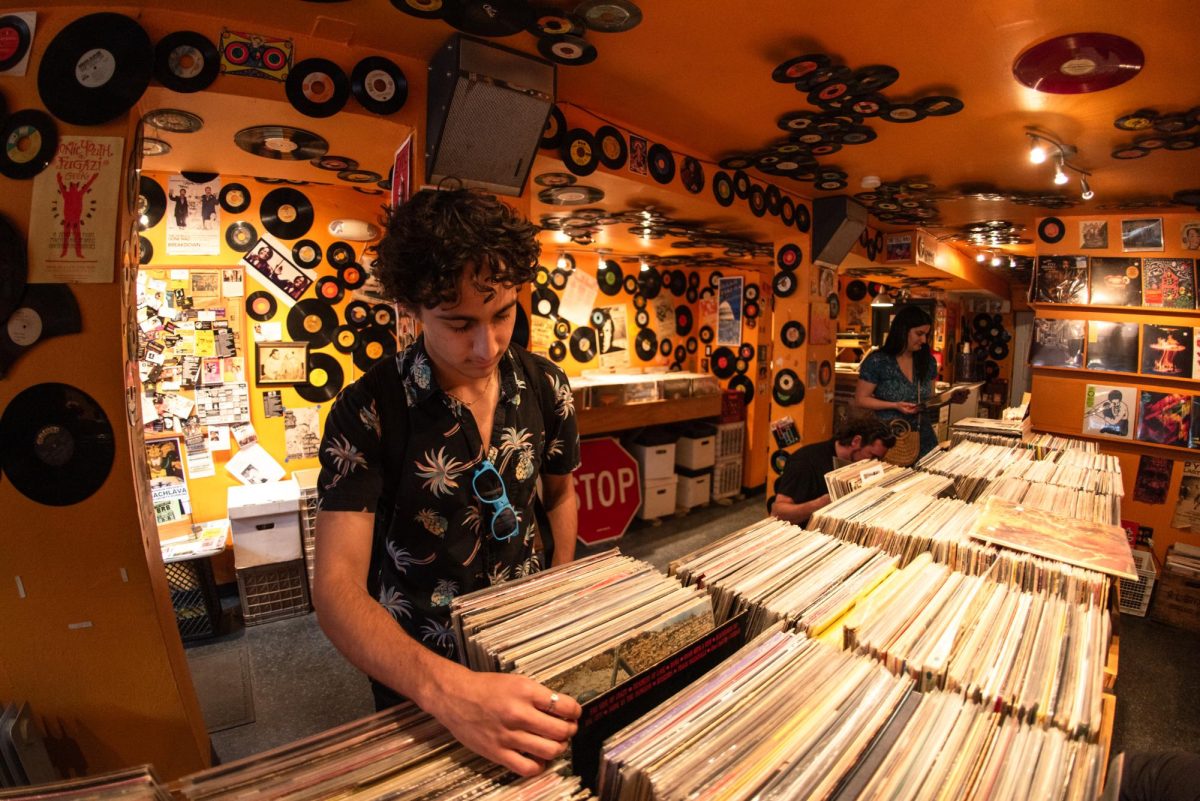The Arab Spring has been captured in newspapers, on YouTube and by its debated catalysts, Facebook and Twitter. It is now captured in film as part of the Arabian Sights film festival, a week-long event produced by FilmFest DC, an international film festival.
The program includes 11 revolutionary films, capturing compelling stories from the Arab World.
Started in 1995, the event has grown both in number of films and audience members.
“That very first year we showed six films in autumn thinking that this was a one time thing, and we had so many people show up,” director of the festival, Shirin Ghareeb said. “And it was really quite an eye-opener for us.”
“Really what it told us that there was this thirst to see these films, and that we were really filling a void because there was no other channel, no other way for the audience to have a look at these films,” Ghareeb said.
This year’s selections focus on Egyptian cinema, including five distinctly Egyptian works that encompass a broad variety of subjects.
“The Arab Spring is going to have an effect on how Arab films are made, about their style and content. This is something that we’re going to see more of, because the Arab Spring is still going on,” Ghareeb said.
Venue host, the Goethe-Institut, has featured works by the festival in the past and wants to bridge the gap between cultures through artistic works.
“One aspect of our mission is that we want to reach out to people here in Washington, and to have a dialogue. And it’s not just Germany or Europe. It’s a broader mission than that,” Norma Broadwater, a spokeswoman with the Goethe-Institut said.
All the movies in the festival will be accompanied by English subtitles, with several movies supplemented by question-and-answer segments with directors.
“We also like to highlight films by new directors, because there’s always an emerging new way to express yourself in film, and it’s the new filmmakers who most often do that,” Ghareeb said.
Featured selection “18 Days,” a film about the Tahrir Square revolution, was also selected for the 2011 Cannes Film Festival. The film incorporates 10 different stories about the Arab Spring that were experienced, heard or imagined. A crew of 10 directors, two of which were women, acted quickly and without a budget to create the collaborative documentary of the Egyptian revolution.
The title is borrowed from the amount of time it took Egypt to change as a country, casting out former dictator Hosni Mubarak and changing the country’s trajectory in history forever.
All proceeds from the film will go to providing political and civic education to Egyptian villages.
Mohamed Diab, an emerging screenwriter, unveils his directorial debut with the film “6,7,8.” The feminist film explores the all-too-frequent incidents of sexual harassment in Egypt and the stigma that follows women who try to combat misogynistic behavior.
“6,7,8” earned top accolades for best actress and best actor at the 2010 Dubai International Film Festival. The film’s storyline follows three women, each with a distinctly different role within Egyptian society – a traditional mother, a wealthy jewelry designer and an aspiring comic. A common thread of abuse via sexual harassment and assault ties all three women together. Angered by the authorities’ neglect to help them, the trio begins to fight back violently.
While the controversial topics have ignited international praise and recognition for their prominent feature in Arab film, an intense battle was also fought within the country to even make the movies.
“Cairo Exit,” a film about the romantic relationship between a Coptic woman and Muslim man, was rejected by the Egyptian government because of director Hesham Issawi’s refusal to change the female character’s religious identity to Islam. Because the Egyptian censorship bureau did not approve “Cairo Exit,” the movie was shot completely underground.
“I’m glad the screenwriter is a woman, because you more often see out of the Arab World men directors and screenwriters, so I think she’ll be a very interesting representative,” Ghareeb said.
Receiving positive reviews, “Cairo Exit” captures a poignant story of two young, underprivileged and unemployed Egyptians. After the showing of “Cairo Exit,” screenwriter Alexandra Kinias will conduct a question-and-answer section after the film.
“These films give us a glimpse of the culture, of family life, of how Arabs feel about what’s going on in their own country. And I think this is a very important perspective that most American do not have a chance to see,” Ghareeb said.
The Arabian Sights Film Festival began Oct. 27 and continues this coming weekend, ending Nov. 6.






